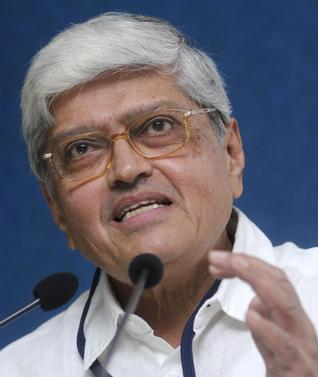Some eighty per cent of Nepal’s population is Hindu. In ordinary parlance that makes Nepal a ‘Hindu majority’ nation. But to dub it ‘Hindu rashtra’ would be democratically discordant and ‘valuationally gross’ (an Amartya Sen phrase). Calling a nation after the religion of its majority is now archaic. It is also, for a republic, odious, since there is a defining distinction between an ‘ordinary democracy’ and one that is also a republic. In a democracy, the majority party ‘rules’. If that political majority represents the nation’s religious majority and makes that religion its driving force, then it would be doing something that would be ideologically questionable but, still, politically legitimate. But in a democracy that is also a republic, the situation is different.
In a republic that has become so after a popular uprising, the distinction is also startling. The republican character of such a nation makes the democratic majority subservient to the foundational principle of republicanism. What is that principle? This, that it requires an unconditional equality among all its citizens irrespective of any consideration—religious, linguistic, regional or other. Bahujana hitaya (for the benefit of the many), bahujana sukhaya (for the benefit and happiness of many) is a democratic tenet. But in a republic, it is accompanied by a third: lokanukampaya and sarva-lokashrayaya (with compassion to all and to all a sanctuary).
Nepal, having opted to become a republic cannot declare itself a Hindu rashtra without impairing its republican character. That King Mahendra brought in the phrase into the then constitution is known, as are the compulsions which weighed with him. To do so now would be to put the clock back, an exercise that goes beyond reverse cranking the springs of a timepiece, to a major regression in its political evolution.
Not only will a Hindu rashtra now be unfair to the 20 per cent non-Hindu population of Nepal, but also to the ethos of many within the 80 per cent who do not believe in mixing up religion and the state, religion and politics and religion and civil liberties. Nepal’s monarchy was Hindu. Its monarchy is over. As is, its monarchy’s religious predispositions shadow over its people.
Nepal has not consigned the monarchic order to the sepia frames of history to bring its undemocratic and unrepublican preconditionings back through drafting strategems. Its people are mature enough to know that a battle won after a heroic struggle on the open fields of protest can be lost in chess games played in the conspiratorial parlours of personal ambition.
I am stating these views because I was asked for them, I would not give them unsolicited to the highly intelligent and experienced people of a country that has known the rule of small durbars and large ones, small intrigues and large ones, small coups and large destabilising insurrections. I would not presume to tell the people of the land where the Buddha was born that the religion of its majority is a philosophy, not a prescription. I am sharing my views in all humility with a people who, I am confident, know what is best for them and for their generations yet to come.
(Gandhi is a veteran Indian diplomat. This article has been originally published in Outlook India on Aug 15)


